Dignity. It is hardly the first word that comes to mind when one thinks of the Trump campaign and its effects on America. From his verbal fusillades against Mexicans, migrants, and Muslims; to his misogynous words and deeds; to his casual talk about political violence, Donald Trump has been a highly polarizing and deeply disturbing political candidate. That hasn’t gone unnoticed around the world—it’s telling, for instance, that Iran broadcasted the second and third presidential debates live on state television. That’s a stark indicator that this campaign hasn’t exactly bolstered our democratic credentials, and less-than-democratic regimes around the world will aren’t likely to forget that fact.
Yet, even as Trump toys publicly with the idea of rejecting the validity of his likely electoral defeat on November 8, there is a way for him to exit this race with his head held high, and with a degree of historical redemption for the meaning of his candidacy in the annals of American democracy. To be sure, there will have to be lots of repentance along the way; the damage to democracy—and to America’s democratic image around the world—that he has wrought is considerable and profound. But it may be reparable, depending on how he chooses to deal with defeat, should that indeed be the voters’ verdict in less than three weeks.
He has…also revealed serious cracks in the political foundation of American internationalism.
For all the narcissism and bitterness that has motivated Trump, he has channeled and dramatized the plight of the American middle-class worker in today’s increasingly globalized, automated, and corporate-driven world like no one before him. To be sure, he is not the first to do so. Over the last generation, Newt Gingrich’s 1994 Contract with America, Howard Dean’s famous yelps in 2004, and the Tea Party revolutionaries of 2010 tapped into a similar political vein. So did Bernie Sanders this past year, giving Hillary Clinton a far more spirited and tenacious run for her money than almost anyone would have predicted that a Vermont socialist could muster in this great capitalist land of ours.
Yet Trump is different. Never in modern times has the anger been so raw, the disdain for decorum so glaring—and the political success of the message and its messenger so surprising. To be sure, his approach has been a sad indictment of the state of our politics in most ways. But in another sense, it should jar us all out of our complacency—and could potentially have constructive effects on our country if we take proper heed. The American middle class is hurting badly, and feeling deeply dispirited. Like many others, I did not adequately understand this phenomenon. Until Trump, warts and all, forced me to see it.
The fact that Trump could easily defeat Cruz, Bush, Christie, Kasich, and Rubio remains remarkable, even if it has now been largely internalized by the body politic. The fact that, until recent weeks, he seemed to have at least a plausible chance of defeating Hillary Clinton is stunning. And who knows, maybe he will still close the gap in the contest in its final weeks.
Much more likely, he will lose. But by giving voice to those who felt voiceless, he will still have upended our political system. He has forced us to see that for many, the middle-class promise of America is severely frayed, if not gone. He has thereby also revealed serious cracks in the political foundation of American internationalism—challenging everything from our globalized economic policies, to our security alliances, to our notion of the United States as a melting pot for immigrants from near and far. Yes, Trump has deliberately and unconscionably deepened those very fissures in ways that could threaten our polity. But he did not create them—and he revealed them to be far more serious than we knew, even before his own presidential campaign made them worse.
In my judgment, Hillary Clinton actually has much better policy proposals than Trump to help the middle class and the working poor, on matters ranging from fiscal policy to health care and the tax code. She also has injected some welcome new ideas into the policy debate, often partly inspired by Bernie Sanders, such as a much greater emphasis on apprenticeships and community colleges in creating career opportunities for Americans who are often left out in the cold today. But no one has anything close to all the answers of what is needed to solve what is probably the great challenge of our times—far greater, in my own eyes, than the threat posed by ISIS or even Vladimir Putin to our nation’s well-being. Trump is not the most obvious choice, in intellectual terms, to help drive further creative thinking and bold action to restore the American middle-class dream. But he does represent the purest expression of the country’s deeply felt need for such an agenda.
Late in the evening of November 8, should he lose, Donald Trump will have an opportunity to transform his role in American politics from a destructive force to a constructive one. He can turn what has largely been a bitter, petulant campaign into a sober channeling of the anger of much of the American middle class. He can vow to spend his future years speaking for them and giving them greater voice. He can remind us all of how far we have to go in helping all our fellow citizens recover their belief in the American dream. He can force ongoing discussion of big new ideas that would help the beleaguered American worker and family, and encourage entrepreneurship and innovation in how we try to rebuild the nation’s middle-class economic opportunities. He could give speeches, perhaps set up an institute to work these issues—who knows, maybe even create a new reality TV show to further the agenda.
As the old Chinese saying goes, every crisis is also an opportunity. Donald Trump has galvanized a crisis in American democracy, one that he has just threatened to greatly worsen if he does not like the voters’ decision on November 8. But this moment will give him a chance to do something big and positive instead, should he choose to reinterpret the enduring meaning of his candidacy not as ego-driven nihilism, but as a clarion call for much greater focus by both parties on the state of the American middle class.
Michael O’Hanlon is an informal adviser to Hillary Clinton.
The Brookings Institution is committed to quality, independence, and impact.
We are supported by a diverse array of funders. In line with our values and policies, each Brookings publication represents the sole views of its author(s).

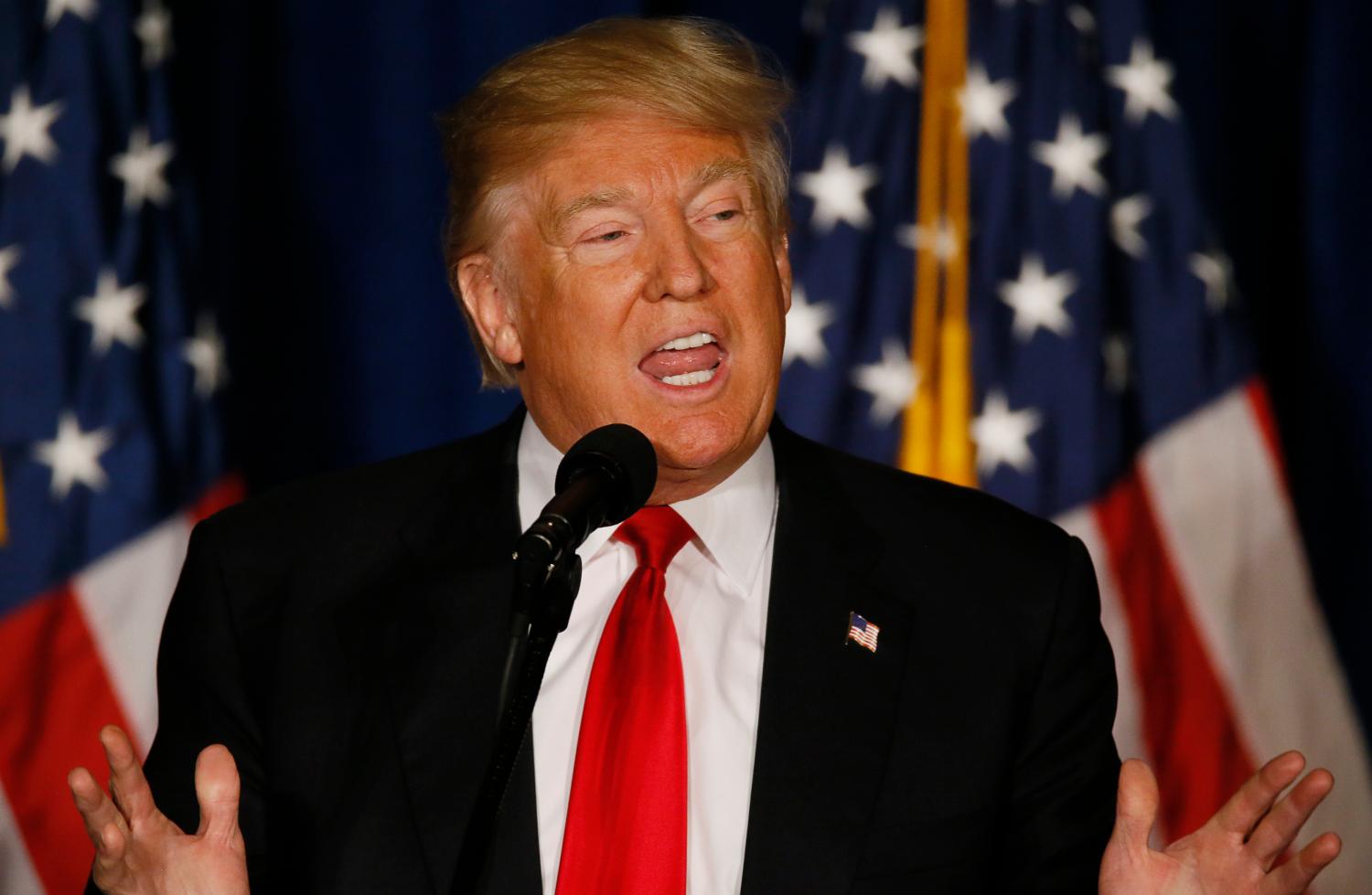
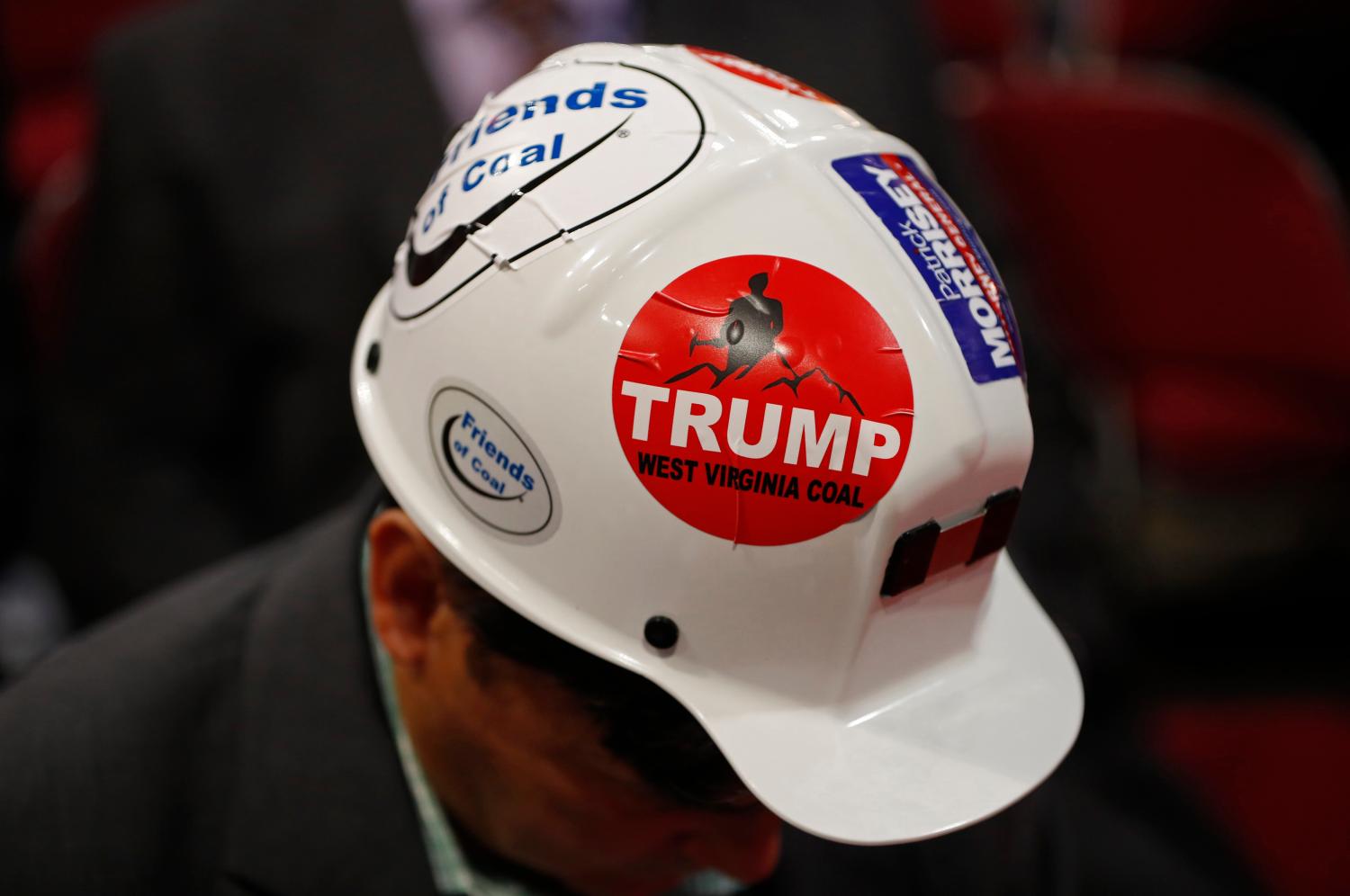
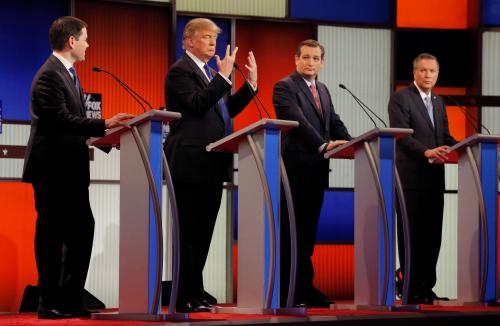
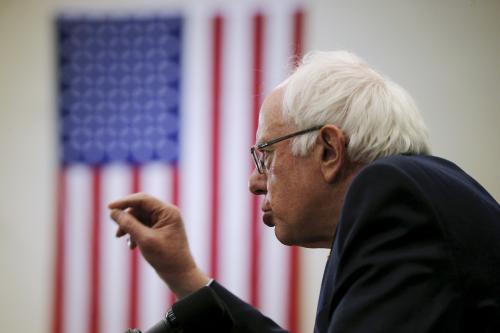
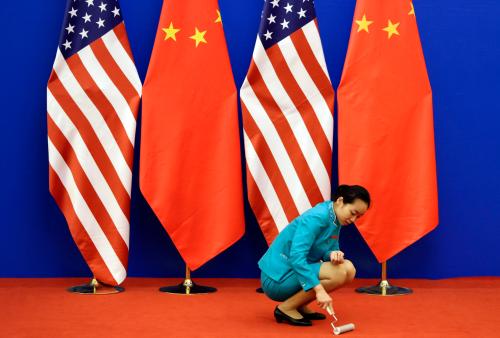




Commentary
Losing with dignity
October 21, 2016